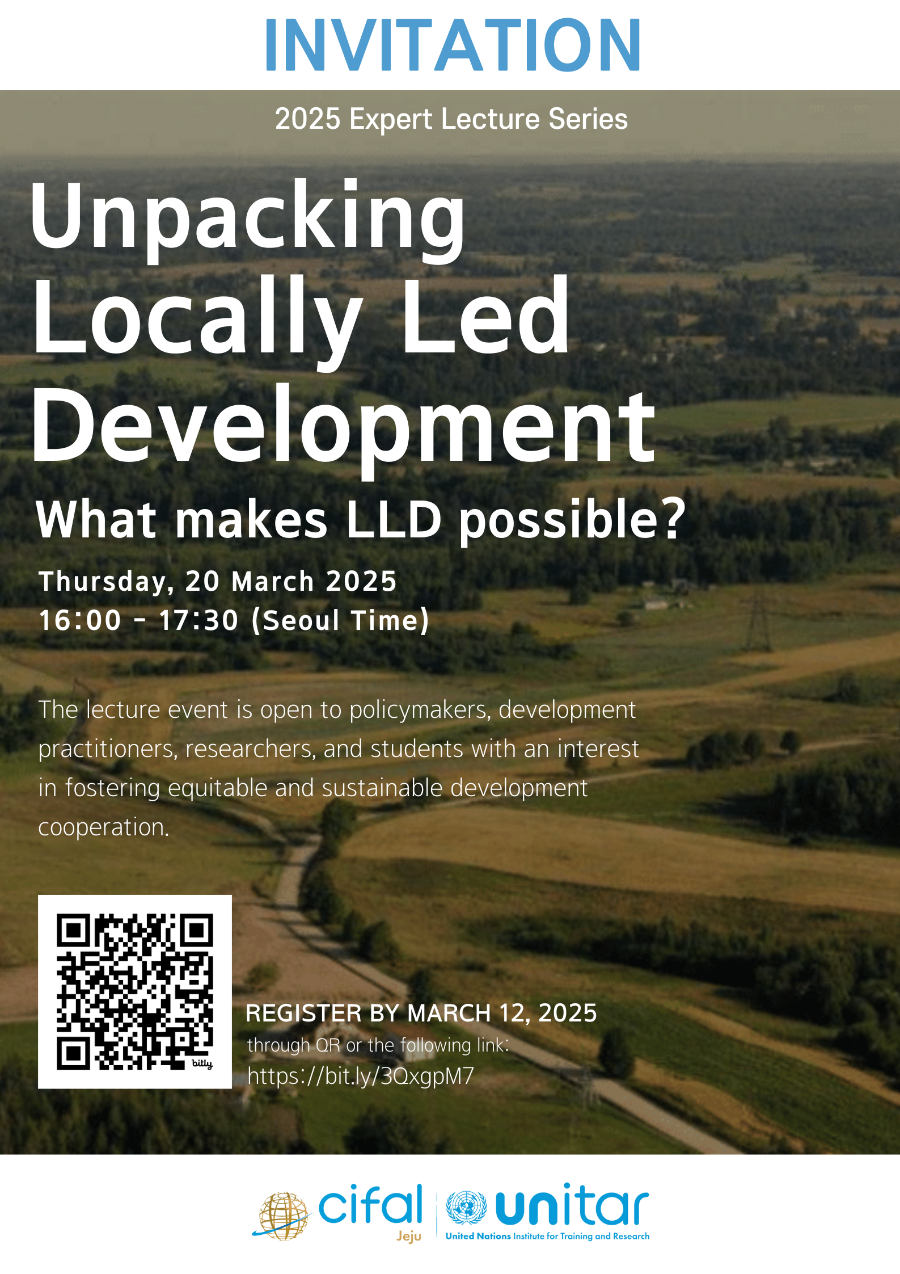
 2025.02.25
2025.02.25
|
2025 Expert Lecture Series on Unpacking Locally Led Development - What makes LLD possible?
Thursday, 20 March 2025
Background
The world is grappling with an era of unprecedented challenges. The COVID-19 pandemic has disrupted lives and economies, while the Russia-Ukraine war continues to reshape global geopolitics. Conflict and fragility are escalating, the climate crisis disproportionately impacts marginalized communities, and political freedoms and human rights face increasing threats. Additionally, persistent gender discrimination and political shifts in major donor countries further complicate the global development landscape envisioned in the 2030 Agenda. Moreover, the growing tendency of some major donor countries to adopt inward-looking foreign policies has exposed the vulnerability of international development cooperation to political fluctuations. These trends underscore the urgent need for sustainable, locally driven solutions. The uncertainty surrounding the effectiveness of traditional, externally led development models – largely driven by the Global North – in the Global South strengthens the case for locally led development (LLD), where communities take the lead in shaping and implementing their own development strategies. While the need to empower local actors is not new, there is growing recognition of their critical role in achieving sustainable and inclusive development. The international development landscape is shifting, with increasing calls to challenge long-standing norms, biases, postcolonial structures that limit local agency. However, advancing LLD remains a challenge for OECD Development Assistance Committee (DAC) members in the Global North, as development cooperation continues to be shaped by externally driven models.[1] Furthermore, unresolved questions persist regarding how to define local actors, the extent of responsibility that should be transferred, and the level of flexibility needed in program design and implementation.[2] Recognizing the need for a systemic shift toward equitable and effective development, this expert lecture series will examine the role of LLD in the Global South, emphasizing the importance of placing decision-making power in the hands of those most affected by development challenges. The lecture will also explore the complexities of defining "who is local" and the power dynamics embedded in localization efforts. By drawing on diverse localization models, participants will gain practical insights into fostering inclusive, sustainable, and community-driven development. Ultimately, this series aims to promote a transformative development paradigm – one where local actors are not merely recipients but key leaders in shaping their own futures.
[1] OECD (2024), Pathways Towards Effective Locally Led Development Co-operation: Learning by Example, OECD Publishing, Paris, https://doi.org/10.1787/51079bba-en [2] Ibid
Overview
Objective The 2025 Expert Lecture Series: Unpacking Locally Led Development – What Makes LLD Possible? seeks to deepen participants' understanding of locally led development by drawing insights from an invited expert. The lecture event will provide a platform to explore how local actors – beyond government institutions – can shape, design, implement, evaluate, and ensure accountability in development cooperation. Through the sessions, participants will identify strategies to overcome structural barriers, strengthen local agency, and establish more equitable partnerships.The series is open to policymakers, development practitioners, researchers, and students with an interest in fostering equitable and sustainable development cooperation.
Format and Participation The session will feature a keynote presentation followed by an interactive Q&A session to facilitate knowledge-sharing and collaborative learning. To maximize engagement, participants will be encouraged to submit questions or reflections on LLD during the registration process. These submissions will be categorized and shared with the speaker in advance, ensuring a focused and insightful discussion.
Registration Deadline This Workshop is offered online only. So, participants who want to attend this program are kindly requested to submit the registration form by 12 March 2025 through:
Organizer
UNITAR CIFAL Jeju/Jeju International Training Center http://cifaljeju.org/ For further inquiries, please contact
Agenda (Tentative)
*The program above is subject to change.
|
||||||||||||||||||







